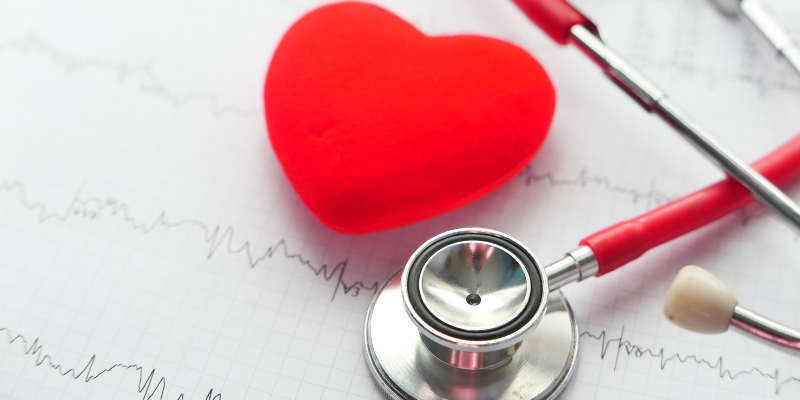
May is High Blood Pressure Education Month. It is important to understand the dangers and to know how to manage high blood pressure once diagnosed. Keep your heart safe by making sure you have regularly scheduled appointments with your doctor to get a blood pressure check. High blood pressure is often referred to as a “silent killer” because it has no warning signs or symptoms. When high blood pressure goes untreated, it can lead to heart attacks and strokes. The good news is that there are steps you can take to prevent high blood pressure or control it if you have recently been diagnosed. Continue reading to learn how to lower your blood pressure.
1. One of the best ways to lower high blood pressure is to increase your activity and exercise. Your heart is a muscle and the more you exercise, the more you are working your heart. After consistent activity and exercise, your heart becomes stronger and pumps with less effort. This results in less stress on your arteries and lowers your blood pressure.
2. If you are overweight, losing weight is highly suggested. Losing just a few pounds can lower your blood pressure and decrease the chances of other medical diagnoses.
3. Smoking can cause many problems and if you have just been diagnosed with high blood pressure and you are a smoker, it is highly recommended that you quit. Tobacco can affect your blood vessels and narrow your arteries, which can lead to high blood pressure.
4. Reducing stress is important for many aspects of your health, but especially your heart health. There are simple ways to manage your stress such as doing yoga and meditation, journaling, exercising, reducing screentime, spending time with friends and family and more. No two people are the same, so make sure to find a successful way to relieve stress. Consider speaking to a professional as it can be immensely helpful and make a difference in your health.
5. Make sure that you are eating a healthy, well-balanced diet. There are many foods that you should try to cut back on when diagnosed with high blood pressure, such as foods with high saturated fat, processed foods, sugar, salt, carbs, caffeine and even alcohol. Food that you should be eating are high-protein foods, fruits and veggies, foods with high potassium and magnesium as well as calcium-rich foods.
6. Getting a good night's rest is extremely important to your heart's health. If you are not consistently getting a good night's sleep, it means that your blood pressure is staying high for longer. When you sleep, your heart rate, breathing rate and blood pressure go down. So, when you are not getting a good amount of sleep, your heart is not resting for as long as it should be.
7. Did you know that a lift chair could improve your high blood pressure? Often, standing up after sitting for an extended period causes a spike in blood pressure. This can result in someone falling over or for someone with high blood pressure, fainting. Lift chairs allow you to slowly rise and stabilize yourself before you stand fully on your own. Lift chairs also allow you to raise your legs, which creates better circulation throughout your body.
Now that you know some tips to practice better heart health for your high blood pressure, start putting them into action during High Blood Pressure Education Month! If you are interested in purchasing our lift chairs, view our selection now!
May 7, 2022 by ThedaCare At Home

